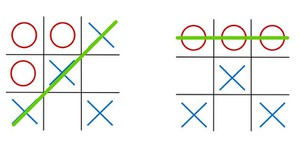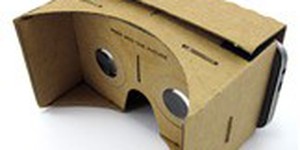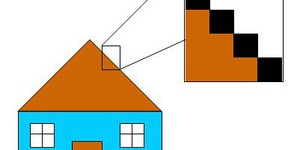Video & Computer Games Science Experiments (31 results)
Fun science experiments to explore everything from kitchen chemistry to DIY mini drones. Easy to set up and perfect for home or school. Browse the collection and see what you want to try first!
You already know that playing video games is fun, but so is making them, and that takes a lot of science! Try your hand at making your own video games, or explore how video games impact how people think, remember, and move.
|
Select a resource
Sort by
|
Do you think you can win tic-tac-toe against an AI player? In this project, you will explore how the Minimax algorithm makes decisions in two-player games such as tic-tac-toe. This project requires little to no coding skill; instead, you will need an open mind and curiosity. Why not give it a try yourself?
Read more
Virtual reality (VR) headsets are becoming increasingly popular with consumers for things like viewing 3D pictures and videos, or for playing video games. However, dedicated gaming headsets like the Oculus Rift® and PlayStation® VR can cost hundreds of dollars. Some headsets, like Google Cardboard™, which is literally made out of folded corrugated cardboard (Figure 1), are much cheaper because they can use any smartphone as the screen.
Figure 1.…
Read more
Virtual reality (VR) headsets are becoming increasingly popular. Video game designers use a variety of programs to create the amazing 3D worlds that you see when you turn on your favorite video game, and many of those worlds are now also designed to be compatible with VR headsets. Can you use a computer-aided design (CAD) program or video game engine to design your own virtual world that can be viewed using a VR headset?
Table 1 lists several CAD programs and websites that you can use to make…
Read more
Do you love playing video and computer games? Do you dream of someday creating your own? With this science fair project you can turn that "someday" wish into a "today" reality!
Read more
When you picture video games, you probably picture realistic three-dimensional figures, a lot of color, and a lot of detail, right? Those descriptions do not really describe video games from the early 1980's. So why do video games today look better than video games from the 80's? One major change between then and now is the number of pixels, or dots on the screen, used to represent video game objects. When Nintendo® first introduced the Super Mario Bros game for the Nintendo Entertainment…
Read more
Have you ever played a video game that made you break a sweat? Or pant a little bit? The majority of video games are sedentary, meaning done in one position, but there is an increasing trend toward video games where the players are physically active. Do you think these video games can be considered exercise? This science fair project will help you find out!
Read more
Do you enjoy playing video games? Do you like the challenge of reaching a difficult game level and scoring lots of points? Video games include many graphic elements that are great to watch, but did you know that not only sighted people enjoy video games? Blind and visually impaired players can also play video games by relying on sound cues — the pings, pops, bangs, and bursts of music that make a game fun or exciting. When building a game that will be accessible to differently abled…
Read more
Alzheimer's disease and dementia affect millions of people around the globe. Can you design a "brain training" game that can help people keep their brains healthy as they age, and maybe one day help treat or even prevent diseases like Alzheimer's? Try this coding science project to find out!
Read more
Do you play video games on a console or smartphone? Have you ever wished you had the power to change how a game worked, or even to create your very own game? This project will show you how to make your very own video game and controller using a Raspberry Pi. Check out the video to see what this simple, but fun, project looks like. Of course, you can design the looks and gameplay of your game any way you like!
IMPORTANT: The instructions for this project were originally written using Scratch 2…
Read more
Have you ever tried rubbing your stomach and patting your head at the same time? What about doing your homework or studying for your math test while watching television? It is tough to focus on a task when you are distracted doing something else, isn't it? In this science fair project, you will investigate how distractions affect your focus on a task, such as driving, by looking at how gaming scores are affected as you're talking on a cell phone or having a conversation with a friend.
Read more
|













